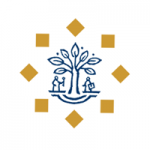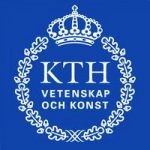项目介绍
Project and background
Tilburg University | Tilburg School of Humanities and Digital Sciences, Department of Cognitive Science and Artificial Intelligence is looking for a Postdoctoral researcher within the HAICu research project. The HAICu project is a large-scale Dutch research project by universities and cultural-heritage institutions into new forms of AI-based access to multimodal Cultural-Heritage data, both contemporary and historical. Within HAICu, AI researchers, Digital Humanities researchers and a wide range of public and private partners will co-develop scientific solutions to unlock the true societal potential of the current heterogeneous digital heritage collections. It will provide easier, richer and more reliable data access to citizens, journalists, civic organizations, and various other stakeholders.
To this end, the HAICu project will research new forms of AI-driven access to multi-modal data stored in Dutch cultural heritage institutions. Within HAICu, Artificial Intelligence researchers and Digital Humanities researchers will co-develop a scientific solution to unfold the true potential of the current heterogeneous digital heritage collections and provide easier and reliable data access to citizens, journalists, civic organizations, and other societal users. HAICu is funded by the NWO National Science Agenda (NWA) and has a budget of about EUR 10 million. HAICu started in February 2024 and will last 6 years (until Jan 2030).
The postdoc will work on Work Package 3, “Learning from Sparse Examples”. In collaboration with Naturalis and the Fontys Hogeschool, the postdoc will develop advanced machine-learning methods that can deal with sparse paleological data. Typically, such data consists of images, scans, or videos of fragments of paleological finds. The research challenge is to develop, apply, and evaluate cutting-edge deep learning algorithms that succeed when the data are sparse: a limited number of instances available, and/or a limited number of labels available. In addition, only the finds may be parts of skeletons, in which case the challenge is to estimate the whole from the sparse parts. The postdoctoral researcher will be located at Tilburg University and will frequently visit Naturalis in Leiden to collaborate with paleological experts. Travelling funds for both locations are included in the project budget.
In addition to the publication of scientific articles, the researcher is expected to make the developed algorithms available to academic and institutional project partners, under open access conditions.
Requirements of the Postdoc is to:
- have a PhD in machine learning, AI, computer science, data science, computational linguistics, information science or a comparable domain.
- have practical and theoretical experience with AI-based computer vision (CNNs, transformers, GNNs)
- have ability to conduct high quality academic research, reflected in demonstrable outputs.
- have proven ability to manage complex projects .
- have the ability to collaborate effectively in diverse teams; someone who is willing to and able to do communication/ administration of connections across stakeholders is preferred.
- have excellent (written and verbal) proficiency in English, good communication and leadership skills.
- be able to demonstrate motivation for research, ideally within the domain of application;
- Affinity with the Dutch language, cultural context and history are pluses.
As a postdoc researcher:
You will be positioned within a team where the task is to develop advanced machine-learning methods that can deal with sparse and possibly multimodal data. The sparsity may be in the limited number of instances available or in the limited number of labels available. Dealing with sparse data will be achieved by means of (i) transfer learning, (ii) structured approaches such as Graph Convolutional Networks, and (iii) unsupervised, self-supervised and semi-supervised methods.
As there is expected coherence and interaction between the work packages of this project, you will be in contact with representatives of other work packages.
The algorithmic tools will be developed according to the “expert-in-the-loop” principle. Each version of the algorithms and tools will be presented to experts and evaluated by them. In this case, “experts” refers to both domain specialists and citizen specialists.
Conditions of employment
Tilburg University offers excellent benefits in a pleasant working environment:
- A position based on 0.8 – 1.0 FTE (32-40 hours per week).
- A salary of minimum € 4,537 and maximum €6,209 gross per month for full-time employment, based on UFO profile Researcher 3 and salary scale 11. Until obtaining your PhD, salary scale 10 will be applied. Tilburg University uses a neutral remuneration system based on relevant work experience.
- This is a vacancy for a temporary position in accordance with Article 2.3 paragraph 5 sub b CLA DU. You will be given a temporary contract for the duration of 24 months.
- Vacation pay of 8% and a year-end bonus of 8.3%.
- Over 8 weeks of vacation leave.
- The opportunity to work partly on campus and partly from home with a home office allowance of €2 per day.
- Reimbursement for sustainable commuting: walking, cycling, and public transport.
- A monthly internet allowance of €25.
- An options model in which you exchange benefits for things such as additional leave, more pension, a bicycle or personal training at our Sports Center.
- A moving allowance (subject to conditions).
- Candidates from outside the Netherlands may qualify for a tax-free allowance. During the first 20 months, 30% of the salary will be reimbursed untaxed. In the next 20 months, this percentage drops to 20% and during the last 20 months, the untaxed reimbursement is 10% of the salary. The university will apply for such an allowance on their behalf.
- A pension with ABP; the largest Dutch pension fund.
- Training in personal development, career development, leadership, education, and research. Or a language course at our Language Center.
- A work culture in which we embrace differences, everyone is welcome and given equal opportunities.
- A vibrant campus in green surroundings that is easily accessible by public transport.
For more information, see our website and the CLA Dutch Universities.
Application procedure
You will ideally start working for Tilburg University on September 1, 2025.
Applications should include a cover letter in English, a Curriculum Vitae (including two references), and a one-page statement about the candidate’s contribution to Computer Science/Artificial Intelligence. The deadline for application is May 15, 2025. Interviews will be held on a rolling basis, as soon as the application has been received and evaluated by the search committee. If you are interested in applying for the position, please use application link.
For more information on this position, please contact Eric Postma, e.o.postma@tilburguniversity.edu.
For more information about HAICu please see https://www.haicu.science/ and follow HAICu on LinkedIn.
Employer
Tilburg University
Tilburg University is an academic, inclusive, and engaged community. Together with nearly 3,000 employees, we are committed to broad prosperity, sustainably, and inclusion. For current and future generations. We develop and share knowledge for the requirements of people and our society. This is how we contribute to solving complex social issues and help society move forward.
We educate our 19,500 students of 110 nationalities to become responsible leaders with knowledge, skills, and character. With our education and research for broad prosperity, we exceedingly focus on themes such as mental and preventive care, an inclusive labor market, the energy transition, and digitalization. About Tilburg School of Humanities and Digital Sciences
The School and the department
The Cognitive Science and Artificial Intelligence department at Tilburg University is part of the Tilburg School of Humanities and Digital Sciences. The department emphasizes innovative cutting-edge research in those areas of cognitive science that bring together psychological and computational theories and methodologies. The group is responsible for the Bachelor and the Master program Cognitive Science & Artificial Intelligence, is co-responsible for the university-wide data science Master program Data Science & Society, and is affiliated with the Jheronimus Academy of Data Science (http://www.jads.nl). Researchers in the Cognitive Science and Artificial Intelligence track have access to computer clusters, experimental lab facilities, and the virtual and mixed reality DAF Technology Lab and its sensing technologies (https://www.tilburguniversity.edu/campus/experiencing-virtual-reality/). Moreover, researchers play an important role in Mind Labs (http://www.mind-labs.eu), an initiative that fosters collaborations between knowledge institutions and corporations in the field of interactive technologies and behavior. Tilburg School of Humanities and Digital Sciences
Recruitment code
Tilburg University applies the recruitmentcode of the Dutch Association for Personnel Management & Organization Development (NVP).
联系方式
电话: +31 (0)13 466 9111相关项目推荐
KD博士实时收录全球顶尖院校的博士项目,总有一个项目等着你!





